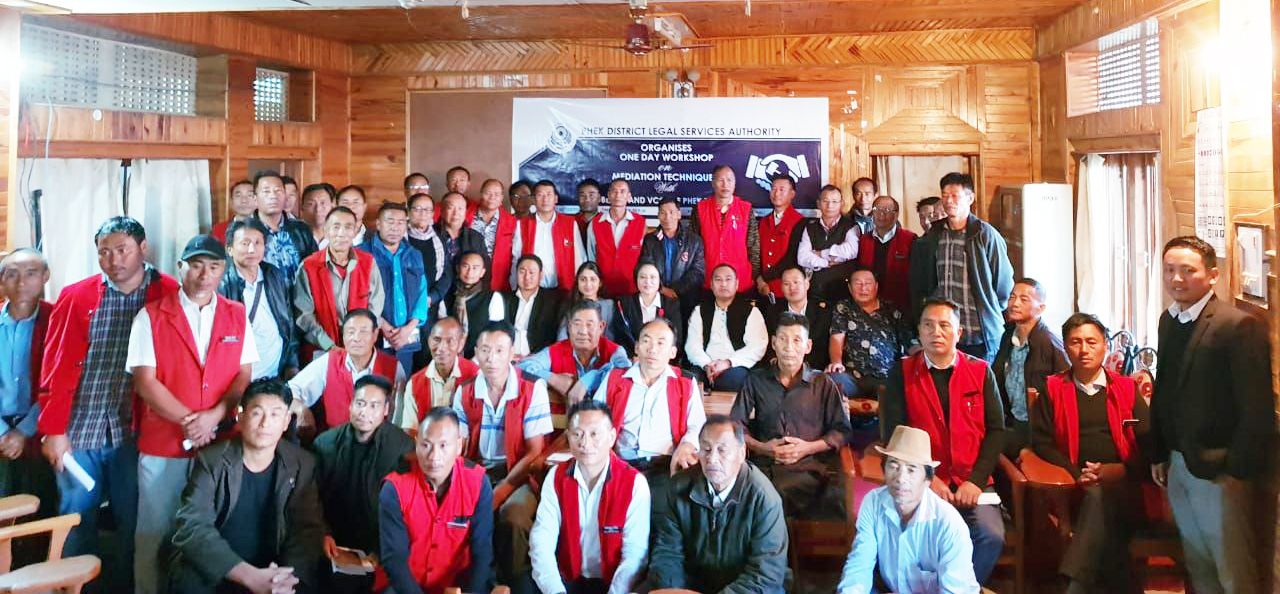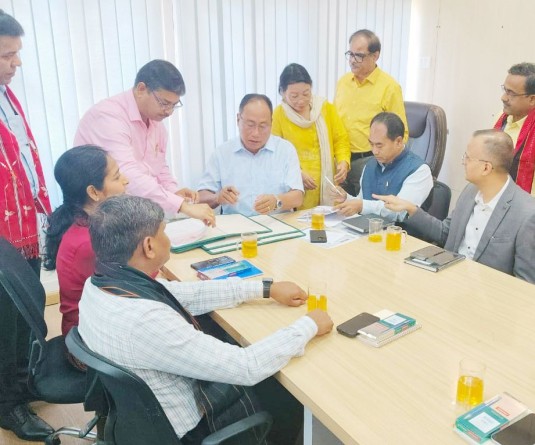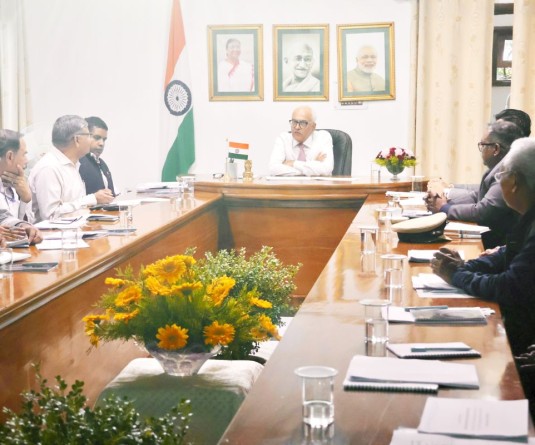Workshop on mediation techniques held in Phek

Dignitaries and participants of workshop on mediation techniques at Phek on October 30.
Phek, October 31 (MExN): A one day workshop on mediation techniques was held today at DPDB Hall Phek with the participation of DBs, GBs and VCCs of Phek Sadar and Khuza circle.
Delivering welcome address, Vethothi Vero, PA, Phek District Legal Service Authority acknowledged the village official of the customary courts by stating that they are the guardians of the customary laws and practices.
He said the workshop has been organized in order to promote and preserve the same with the modern techniques in tune with changing times.
Mezivolu T.Therieh, NJS, District & Sessions Judge & chairperson, Phek District Legal Services Authority said that the concept of mediation in India received legislative recognition for the first time in the Industrial Dispute Act, 1947.
Also, the legislature by enacting the Legal Services Authority Act, 1987 vested the State Legal Services Authorities with duties to encourage the settlement of disputes by way of negotiations, mediation, arbitration and conciliation and Lok Adalats.
Mediation being one of the Alternative Dispute Resolution (ADR) mechanism is one of the best strategies for speedy resolution of disputes, flexibility, saves valuable time and avoid lengthy trials, she said.
“Mediation is not uncommon in Naga society and is indirectly practiced in all decision making and resolutions of conflicts by the village elders and village councils. The provisions under Article 371A of the Constitution of India need to be thoroughly researched so that we preserve and protect our customs and traditions with the modern day techniques. We all need to work together to bring about amendments in our existing laws in tune with the changing times and also work towards bringing about adequate laws to preserve and protect our society,” she said.
Welcoming the step taken by the present day government to document and codify our customary practices, she said “we must all join hands with the Government to make this effort a reality.”
Mamang Singson, Retainer Lawyer, PDLSA in his topic presentation on rules for administration of justice and police in Nagaland, 1937 and its further amendments mentioned that such a procedural law was gifted by the British with a discipline system and urged the guardians of customary courts to follow its application in spirit of the code of criminal procedure and code of civil procedure as embodied under the rules.
He mentioned that unless the rules and the village council Act meant for their governance are being followed, the adjudication of the cases in their courts will always be challenged in the higher courts and their decisions will be quashed on technical grounds.
V. Ashu Theyo, Advocate & Trained Mediator, in his topic presentation on mediation techniques mentioned that mediation is an informal way of adjudicating cases by following some simple ground rules and making the parties themselves resolve their differences.
He stated that one of the important factors to bear in mind is the confidentiality. He said that heinous crimes will not fall within the purview of mediation. He said that the customs and traditions must combine with wisdom and knowledge so that our society can move ahead with the prevailing time.
He mentioned about the system of the Greeks and British and how the tradition and customs of time immemorial are still followed as it is in tune with the changing times. Mediation is very much in tune with Article 371A of the Constitution of India and therefore encouraged the village functionaries to decide cases not randomly but following an amicable way in settling the disputes.
He stated that translating law into ground situation will be difficult if random procedures are followed and our customary practices will lose its weightage.
One settlement may lead to another conflict if cases are not decided with modern techniques, he added.
Chivohu Lohe, head DB, Phek Sadar in his short speech lamented that the customary courts applies its wisdom to adjudicate cases but at times, the higher courts failed to understand the challenges under which the decisions are pronounced.
Short speech was delivered by Bhavani Sri, IAS, SDO (J), Phek.





